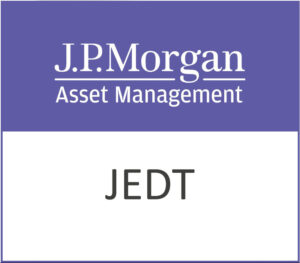As one of Europe’s leading low-cost carriers, EasyJet PLC (EZJ.L) has long been a staple for budget-conscious travellers. With its headquarters in Luton, United Kingdom, the airline has built a vast network across Europe since its founding in 1995. Today, EasyJet is a significant player in the industrial sector, specifically within the airline industry, with a market capitalisation of $3.89 billion.
Currently, EasyJet’s stock is priced at 518 GBp, with a slight dip of 3.60 points, representing a marginal 0.01% decrease. The share price navigates within a 52-week range of 418.90 GBp to 587.80 GBp, offering a glimpse into its price volatility and investor sentiment over the past year.
A crucial aspect of EasyJet’s financial outlook is its valuation metrics. Notably absent are traditional indicators such as the trailing P/E ratio and PEG ratio, which are often relied upon by investors to gauge a company’s valuation relative to its earnings growth. However, the forward P/E ratio stands starkly at 664.96, a figure that might raise eyebrows but also suggests anticipated growth that could justify this valuation in the future.
Revenue growth at EasyJet is a solid 8.10%, a figure that underscores the company’s resilience and ability to rebound in a highly competitive market. The airline’s robust return on equity of 16.27% is indicative of how effectively it is deploying capital to generate profits. Additionally, the free cash flow of over £605 million bolsters its financial health, providing a cushion for operational needs and future investments.
Investors seeking income will find EasyJet’s dividend yield of 2.33% appealing, supported by a conservative payout ratio of 22.24%, suggesting sustainability and potential for future increases. This dividend strategy aligns with the company’s overall financial prudence, ensuring shareholder returns while maintaining growth capital.
Analysts provide a favourable outlook for EasyJet, with 13 buy ratings and 6 hold ratings, and notably, no sell ratings. This optimism is reflected in the target price range of 575.00 GBp to 900.00 GBp, with an average target of 697.32 GBp, indicating a potential upside of 34.62%. This substantial potential gain is an alluring prospect for investors considering adding airline stocks to their portfolios.
From a technical perspective, EasyJet’s stock shows mixed signals. The 50-day moving average of 528.69 GBp is just above the current price, while the 200-day moving average sits at 517.63 GBp, suggesting potential support at current levels. The Relative Strength Index (RSI) stands at 66.91, approaching overbought conditions, which could indicate a forthcoming price adjustment. Meanwhile, the MACD and signal line show a divergence that warrants close monitoring by technical analysts.
EasyJet’s operational model, encompassing aircraft trading and leasing, building project development, and holiday packages, positions it uniquely within the airline sector. These diversified activities not only mitigate risk but also enhance revenue streams beyond traditional passenger flights.
In the ever-evolving landscape of the airline industry, EasyJet’s commitment to cost-efficient operations and strategic expansions remains pivotal. As the skies clear post-pandemic, EasyJet appears poised to capitalise on the resurgence in air travel, positioning itself as a compelling option for both value and growth investors.






































